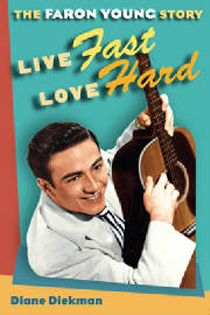 Suicide.
Suicide.I liked that song about suicide -- the theme song to the M.A.S.H. movie -- Suicide is painless, it brings on many changes....Mike Altman was 14 when he wrote the lyrics. Who better than a 14-year-old to know about angst and wishing oneself dead? It bothered my parents to hear the words -- I don't think hearing the word, discussing the topic or even romanticizing the afterlife will convince someone to participate. Suicide is, in my opinion, a get-even act. But, when I 'get even' I really like to be around to see it. Suicide, so far, has not appealed to me.
I also know too many who have chosen that as an exit strategy when life threw too much at them. It is if you will, a 'get even and goodbye' act. I can perhaps understand that a bit more.
If nothing else, my parents and I enjoyed the tune, written by Johnny Mandel.
I checked on Wikipedia, choosing that medium for lack of knowing where else to look, and found 50 other songs that refer to suicide. Euro Puppy Blog lists only 24 songs about dogs. Perhaps if more people had the love of a good dog, there would be less songs about suicide.
I wonder if David Foster Wallace had a dog.
He's dead you know. Wallace, not the dog. That sounds flip and I suppose it is because the moment I let myself feel the loss, I get angry.
How could he be so selfish to take himself, his truths, his words, his angst, his needs, his contributions, his self-loathing and insecurities and smile and potential out of this world? How dare he give up on being human?
He was in pain.
Well, aren't we all?
Didn't he know his words helped me deal better with the pain, at least to better understand what I was feeling? I didn't know him or his work, his story, his life, nothing until someone on the Internet Writing Workshop announced that he had died. I did a search for the name and found a voice that resonated with me, helped clarify the human condition, and shared the growth pangs as I strive for maturity.
He told a graduating class at Kenyon:
"The really important kind of freedom involves attention and awareness and discipline, and being able truly to care about other people and to sacrifice for them over and over in myriad petty, unsexy ways every day."Or was he just tired of us? Maybe he was ready for the next plateau and he couldn't handle the mundane, mediocrity of this life? The lack of stimulation and interesting fellow humans?
His interview with Charlie Rose certainly gives insight into some of the pain and frustration he was feeling.
I'm not a member of his generation, at least chronologically, but I recognize truth when I see it and in an interview with Salon, he said this about living in America around the time of the millennium:
"There's something particularly sad about it, something that doesn't have very much to do with physical circumstances, or the economy, or any of the stuff that gets talked about in the news. It's more like a stomach-level sadness. I see it in myself and my friends in different ways. It manifests itself as a kind of lostness. Whether it's unique to our generation I really don't know."
I'm angry at David Foster Wallace and mourn him, regret not knowing him, and hope that his life and even his death will help others find their way -- a better way-- to living life fully and with joy and with understanding and yes, with self-forgiveness.
P.S. According to quotes in a New York Times article from his father, Wallace had been on heavy medication to fight depression and nothing was working. His father was quoted as saying, “He’d been in the hospital a couple of times over the summer and had undergone electro-convulsive therapy. Everything had been tried, and he just couldn’t stand it anymore.”
That kind of hopelessness -- soul killing hopelessness. I pray you've found a better place David Foster Wallace -- and peace.






















2 comments:
I have a friend who suffers from depression, deep depression. Another of my friends is angry at her for being so distant. I can't be angry. I think she is far down in a place that what she does can't be taken personally. And more so for David Foster Wallace-- be angry, but . . . he had passed into a place we can't image, and don't want to. I hurt for him, too.
My anger is self indulgent, perhaps, and not entirely aimed at David Foster Wallace. I feel cheated by the loss of this beautiful mind, this exquisite writer, this genius. In a world where we need every thinker we can get, I worry that there will be no one to take his place. Angry I remain. He gave up -- I wanted him to fight! But more than that, I'm angry that he had no weapon with which to fight. We need better mental health research and care. If he had erectile dysfunction -- he had a BIG choice of pills to help that problem. Mental illness? Depression? Not so much!
Post a Comment